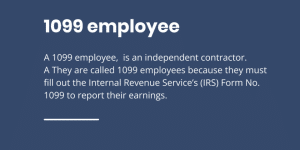Updated December 27, 2023
You’ll Need: Evidence Proving Fault and Damages
If you’ve been lied to by your employer in California, you may be wondering if you have any legal recourse. Being deceived by your employer can have serious consequences, such as damage to your personal and professional reputation, missed opportunities for career advancement, or even termination. In this article, we will explore the possibility of suing your employer for lying and discuss the relevant laws and procedures in California. Yes, it is possible to sue your boss for lying in certain instances.
Understanding Defamation in California
One possible legal avenue to consider when your employer lies to you is a defamation claim. Defamation refers to making false statements that harm someone’s reputation. In California, defamation can take two forms: libel, which involves written defamatory statements, and slander, which involves spoken defamatory statements.
To successfully prove a defamation claim, you must meet four key requirements:
Defamation Claim Requirements
1. False Statement of Fact
The first requirement is that someone made a false statement of fact about you. It’s important to note that opinions are generally protected under the First Amendment and cannot form the basis of a defamation claim. However, if someone makes a false statement of fact that harms your reputation, you may have grounds for legal action.
2. Publication to a Third Party
The second requirement is that the false statement was published or communicated to a third person. This means that the statement was shared with someone other than yourself or the person who made it. In the employment context, this can sometimes be challenging to establish, especially if the false statement was made internally within the company.
3. Fault
The third requirement is showing that the person who made the false statement is at fault. The level of fault required depends on whether the defamed individual is a private or public figure. Private individuals, including most employees, need to demonstrate that the defamer was at least negligent in making the false statement. This means that the defamer failed to exercise reasonable care in ensuring the truthfulness of their statement.
On the other hand, if the defamed individual is a public figure, such as a prominent public figure or a high-ranking government official, they need to prove that the defamer either knew the statement was false or acted with reckless disregard for the truth.
4. Harm to Reputation
The final requirement is showing that the false statement caused harm to your reputation. This harm can manifest in various ways, such as damage to personal relationships, loss of job opportunities, or negative impacts on your professional standing. In some cases, the harm caused by the false statement may be so severe that it is considered defamation per se, meaning that the statement is inherently harmful and doesn’t require further proof of damages.
Defamation in Employment Situations
Defamation often arises in employment situations, particularly when employers make false statements about their employees. There are two common scenarios where defamation may occur: employment references and employee reviews.
Promissory Fraud
Fraud is another possible basis for your claim. In this instance you will need to prove intent (whether malice or negligence) and the direct harm that it caused. As always, it’s best to get everything in your employment agreement in written form. Formal contracts are best, but even emails/sms messages will work. This includes promises such as promotions, bonuses, benefits, schedule, duties and anything that is crucial to your position and well-being.
Employment References
When you apply for a new job, it is common to provide references from previous employers. However, if your former employer knowingly or recklessly makes false statements about you during the reference check, it can harm your chances of securing the new position.
In California, employers generally have the right to share information about their former employees with prospective employers. This right is known as qualified privilege. However, this privilege is not absolute, and employers must act in good faith when sharing information.
To prove defamation in an employment reference case, you would need to show that the false statements made by your former employer were made knowingly or recklessly, and that they resulted in harm, such as the loss of a job opportunity.
Employee Reviews
Employee reviews, particularly those conducted for promotion or performance evaluation purposes, can also give rise to defamation claims if false statements are made. If your supervisor or manager includes false and damaging information about you in their reports, and as a result, you are denied a promotion or suffer other negative consequences, you may have grounds for a defamation claim.
To succeed in an employee review defamation case, you would need to demonstrate that the statements made by your supervisor were false, made with fault (negligence or actual malice depending on your status as a private or public figure), and caused harm to your reputation.
Legal Options and Considerations in California
While defamation claims may seem like a viable option for seeking recourse when your employer lies to you, it’s important to note that pursuing a defamation lawsuit can be challenging. Proving the elements of defamation or fraud, especially the fault and harm requirements, can be complex and require substantial evidence.
Additionally, these types of cases can be highly fact-specific, and the outcome may depend on the specific circumstances of each case. It’s crucial to consult with an experienced employment law attorney in California who can evaluate the strength of your case and guide you through the legal process.
It’s worth noting that California has robust employment laws that protect employees in various situations, including wrongful termination, retaliation, and defamation. Depending on the nature of the employer’s lies and the harm you suffered, you may have other legal avenues to explore, such as filing a wrongful termination or retaliation claim.
Conclusion
Being lied to by your employer can have significant ramifications for your personal and professional life. If you have been harmed as a result of false statements made by your employer, pursuing a defamation claim may be an option worth considering. However, defamation cases can be complex, and success is not guaranteed. It’s crucial to consult with a knowledgeable employment law attorney in California who can assess the strengths and weaknesses of your case and provide guidance tailored to your specific circumstances.
If you need employment litigation, please call Setyan Law at (213)-618-3655. Free consultation.





